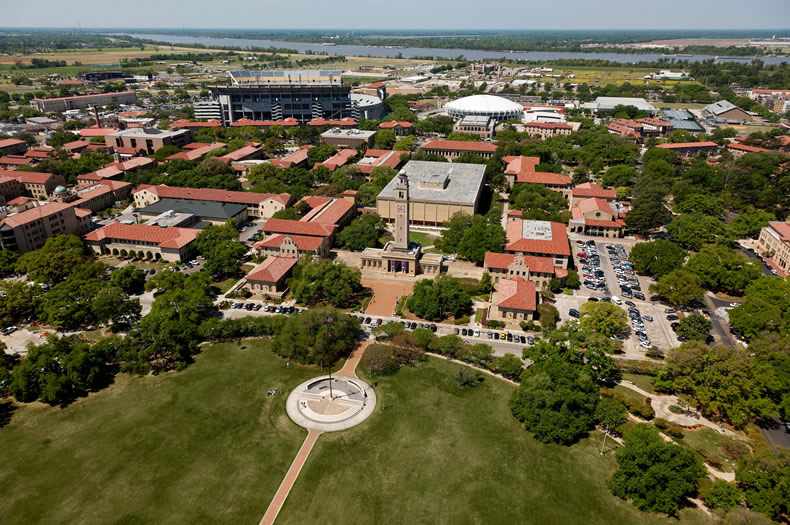US News – For LSU, a good offense has always proved to be the best defense. But now the school that hosts the nationally ranked Tigers is facing a foe that makes the Crimson Tide seem weak: budget cuts.
 Louisiana’s public colleges are hoping for the best but preparing for the worst as they face a drop in state funding of up to 82 percent. As the state legislature fails to make headway covering a $608 million shortfall in higher education spending, its public colleges are bracing for the prospect of budget cuts so deep some institutions — including the state’s biggest public flagship — might have to declare financial exigency. That’s college funding-speak for something akin to bankruptcy.
Louisiana’s public colleges are hoping for the best but preparing for the worst as they face a drop in state funding of up to 82 percent. As the state legislature fails to make headway covering a $608 million shortfall in higher education spending, its public colleges are bracing for the prospect of budget cuts so deep some institutions — including the state’s biggest public flagship — might have to declare financial exigency. That’s college funding-speak for something akin to bankruptcy.
The potential threat to Louisiana’s public colleges is unprecedented, said Jordan Kurland, associate general secretary of the National American Association of University Professors.
“I don’t know if anything that drastic has occurred anywhere in modern times or perhaps ever,” he said. “It’s hard to know what cuts of that magnitude will amount to.”
Under financial exigency, a bankruptcy-like status that gives institutions a legal pathway to change contracts or other financial obligations, schools would have more freedom to lay off tenured professors or eliminate programs and departments.
“We need to have every tool at our disposal to survive,” said F. King Alexander, president and chancellor of the Louisiana State University system, who added that the school still hoped to avoid exigency. “We’re optimistic that we can get through this but as managers of the institution, we’ve got to play out every scenario,” he said.
Worst-case scenario
But without a rescue from lawmakers, Alexander said programs could be dropped or entire departments shuttered under a worst-case scenario. “Specifically, we don’t know which programs or departments we’re talking about [but] it would require us to utilize every tool possible,” he said.
Even if the worst-case scenario doesn’t come to pass, it’s possible students could find themselves paying more, through increases in tuition and fees or decreases in the state’s TOPS scholarship program. Lawmakers have historically been reluctant to raise tuition — currently $8,758 for tuition and fees for in-state students at LSU — but there is discussion about giving schools themselves more freedom to do so.
Administrators say students have already been asked to shoulder a growing amount of the cost and can’t take on any more.
“We’ve gone from being very state funded-intensive to being tuition-dependent, and we’ve got 40 percent of our students that are Pell [grant] eligible,” said Sandra Woodley, president of the University of Louisiana system, which consists of nine universities throughout the state. Since 2009, tuition and fees have climbed by 61 percent while state funding has dropped by 55 percent, a drop of $90 million.
“We’ve already shifted to mostly being funded by tuition revenue in a state that has a relatively low income population,” Woodley said. Further cuts would just hurt the most vulnerable.
“We need the legislature to find general fund dollars to fill the gap,” she said. “We’re no longer able to shift the burden to the students.”
Alexander said other options LSU is discussing with its student government include implementing or increasing fees on services ranging from tutoring to mental-health counseling. Facilities like computer labs or the school health center could have their hours of operations pared back.
Enrollment declines
Whatever the outcome, the legislative gridlock is hurting the state’s public higher education infrastructure, Woodley said. “We’re already starting to see enrollment declines all across our system,” she said. “I think a good part of that is due to the affordability issues.”
The fiscal uncertainty also could affect schools’ borrowing ability. Earlier this month, Moody’s Investors Service lowered LSU’s outlook, citing “limited prospects for sustained revenue growth due to potential reductions in state operating funding,” among other factors.
“More people [who] have the means to do so will leave Louisiana for college and get their college educations elsewhere,” Kurland said. He added that the threat of exigency would make it harder for state schools to attract good tenure-track professors.
This could hurt Louisiana’s ability to compete for businesses and jobs, Kurland said. “[If] the skilled workforce is not being developed… it’ll discourage industry from investing money because the prospects will look so bleak,” he said. Rather than pour money into training workers, companies seeking to start up or grow will look elsewhere.
Woodley said the UL system was already trying to double the number of STEM majors it graduates to keep up with demand and make the state more competitive, but those efforts risk being derailed for a lack of funds.
“The momentum we had in higher education in conjunction with development… is the biggest thing that’s in jeopardy,” she said.
By Martha C. White, NBCNews.com

